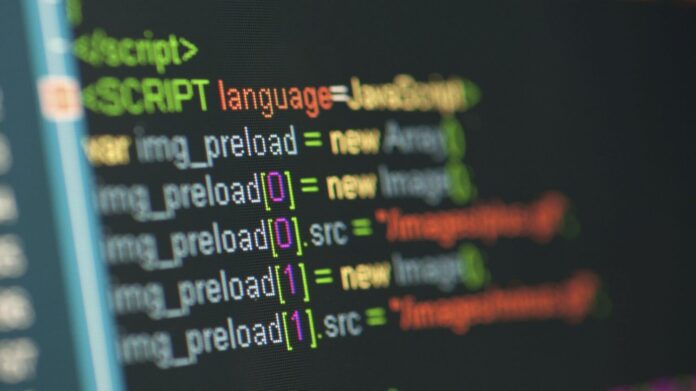Do you often find yourself staring at your screen for hours, trying to figure out how to solve a coding problem? If you answered yes, then you have come to the right place! Though the learning curve for programming can be steep, do not let that discourage you.
This post will share some tried-and-true tips to help you become an extraordinary coder. Whether you are a beginner or a seasoned programmer, these tips will help you boost your skills and take your coding to new heights. So grab your laptop, get comfortable, and dive into the world of coding.
1. Participate In Coding Competitions

Participating in coding competitions is a great way to challenge yourself and meet like-minded people in the field. Unlike in the past, you can now find coding competitions in a wide variety of formats and difficulty levels. From short, quick coding quizzes to longer, more complex hackathons, you can find a contest that fits your skills and interests.
Another upside of participating in coding challenges is that you can put your skills to the test against other talented coders from around the world. That way, you can evaluate your knowledge, come to terms with how hard is it to learn code, and even learn a thing or two from other participants.
2. Practice! Practice! Practice!
Like everything else, coding also requires practice. The more you practice, the better you will get at coding. With regular practice, the concepts and techniques become ingrained in your memory. As a result, you will have an easier time recalling the required information.
One great way to practice your coding skills is by closely examining famous developers and code libraries. Take note of what stands out to you. This will help you improve your coding skills and give you a sense of what good code looks like.
Practicing once in a while will not cut it for you; consistency is the key here. You do not have to dedicate a lot of time; practicing for 20 – 30 minutes every day will keep you in touch with the subject. So, lay down a schedule and stick to it. Whether during your lunch break or after work, set aside time each day to practice your coding skills.
3. Learn Multiple Coding Languages

Having fluency in more than one coding language can broaden your perspective. Knowing that you have several potential avenues for fixing a problem will make you a more efficient programmer. Simply put, learning multiple programming languages is like stocking up on various tools. Each language is a unique tool that can help you tackle different coding challenges. And similar to a handyman who can fix anything with the right tools, a coder who knows multiple languages can tackle any problem that comes their way.
Learning new languages can be a lot of fun too. Imagine being able to code your own game in C++ or create your website with HTML and CSS. The possibilities are endless, and the more languages you know, the more fun you will have. And remember, it is not just about scratching the surface of a language. To truly master a language, you must dive deep and understand the ins and outs of it.
4. Write Code By Hand
Some people may think that the concept of writing code by hand has become obsolete. But trust us, it is still a valuable skill to have. It helps you improve your typing speed and also allows you to truly understand the code you are writing.
Working with a code editor makes it tempting to rely on the code editor autocomplete and other pre-installed features. Writing code by hand, however, necessitates a more critical approach. You have to pay attention to every character of the code, which can help you spot mistakes more easily. So, next time you work on a coding project, try writing some of the code by hand. It might take a little longer, but the benefits are well worth it.
5. Contribute To Open-Source Projects

Contributing to open-source projects is a powerful way to improve your coding skills and gain real-world experience. By actively undertaking these projects, you can learn from experienced developers, work with a diverse group of people, and expand your knowledge about different technologies and coding practices.
The best part about open-source projects is that you may choose a task that aligns with your interests or goals. For example, if you are drawn toward machine learning, you can easily find projects that use machine-learning techniques to solve problems.
Typically, people with a passion for a specific cause develop open-source software. It creates a positive and supportive environment where you can learn and grow as a developer. Plus, knowing that something you are working on will help millions of people gives you a great sense of accomplishment.
6. Teach Others What You Have Learned

An adage goes, “If you cannot explain it simply, you do not understand it well enough.” When you teach coding to someone else, you are forced to break down complex concepts into simple, easy-to-understand terms. It improves not only your understanding but also your capacity to explain it to others. When it comes to teaching, you have several options at your disposal. You could guide a younger student, instruct a coworker, or publish an online course.
Moreover, providing knowledge to others can showcase your expertise and build a personal brand. Resultantly, you will expand your network and increase chances for long-term collaborations.
Conclusion
The quest to becoming a better programmer and maintaining your proficiency is an ongoing journey. To be on top of your game, practice more, learn a new language, participate in a coding contest, and volunteer for an open-source project.
Whether you are an experienced developer or just getting started, you will also need to keep learning new things to keep up with the rapidly developing field of computer science. And that is where this manual comes in handy. You may bookmark this page and return to it whenever you need inspiration or direction.






